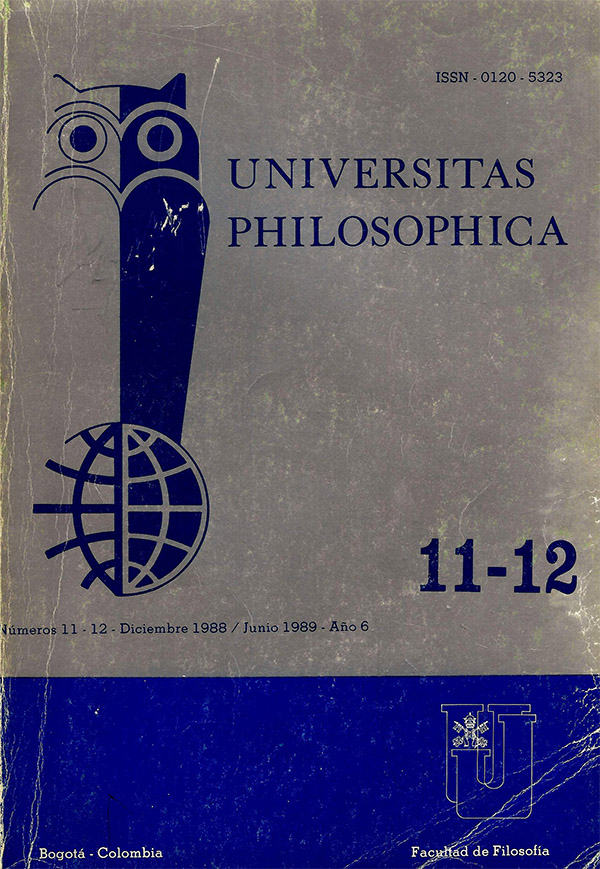Abstract
En el presente artículo se exponen los argumentos hegelianos que refutan el escepticismo moderno del profesor Schulze; el escepticismo del Aenesidemus retorna la crítica de David Hume contra las pretensiones teóricas de la metafísica extendiendo dicha crítica a los intentos especulativos de fundamentar la filosofía teórica a partir de un principio único universalmente válido.
Schulze denuncia los intentos de los filósofos idealistas como aberraciones ontológicas en la filosofía teórica; considera que la especulación filosófica es un sinsentido que debe ser desterrado. El escepticismo se vincula aquí con una reivindicación de los prejuicios del sentido común como pautas conceptuales para la dirección moral de la conducta humana.
Hegel refuta los argumentos escépticos de Schulze en el Kritische Journal der Philosophie; la refutación hegeliana consiste en demostrar la interna relación existente entre escepticismo y especulación filosófica. Refutar radicalmente el escepticismo quiere decir, para nuestro filósofo, realizar la unidad en sí misma absoluta de la razón; unidad ésta que sólo puede ser alcanzada en y a partir de la realización del idealismo como idealismo absoluto. Esta refutación del escepticismo le permite a Hegel concebir que el camino de la conciencia natural hacia la ciencia absoluta es ya en cada caso un camino científico; idea ésta que es el verdadero eje estructural y
conceptual de la Fenomenología del Espíritu.
This journal is registered under a Creative Commons Attribution 4.0 International Public License. Thus, this work may be reproduced, distributed, and publicly shared in digital format, as long as the names of the authors and Pontificia Universidad Javeriana are acknowledged. Others are allowed to quote, adapt, transform, auto-archive, republish, and create based on this material, for any purpose (even commercial ones), provided the authorship is duly acknowledged, a link to the original work is provided, and it is specified if changes have been made. Pontificia Universidad Javeriana does not hold the rights of published works and the authors are solely responsible for the contents of their works; they keep the moral, intellectual, privacy, and publicity rights.
Approving the intervention of the work (review, copy-editing, translation, layout) and the following outreach, are granted through an use license and not through an assignment of rights. This means the journal and Pontificia Universidad Javeriana cannot be held responsible for any ethical malpractice by the authors. As a consequence of the protection granted by the use license, the journal is not required to publish recantations or modify information already published, unless the errata stems from the editorial management process. Publishing contents in this journal does not generate royalties for contributors.


